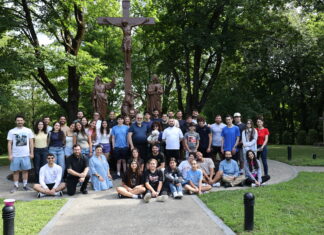STOCKHOLM (DW) — David Julius and Ardem Patapoutian have been awarded this year’s Nobel Prize in Physiology or Medicine.
The Nobel Committee’s Thomas Perlmann said Julius and Patapoutian had “unlocked one of the secrets of nature,” and that is how we sense and feel our way around in the world. Our sense of touch, how we sense depth, reach out for things, and also how we experience pain.
In a year when many may have expected the prize to go to at least one of the makers of a COVID-19 vaccine, Perlmann said this was deemed the most important discovery in Physiology or Medicine in 2021. He said he couldn’t say more without “breaking confidentiality.”
This is basic research, which the committee says will have benefits for future drug development.
As for the developments in coronavirus research over the past year and a half, the committee would only say that it worked on the basis of discoveries that had been nominated.
They wouldn’t say whether drug and vaccine discoveries against SARS-CoV-2 had been nominated.









